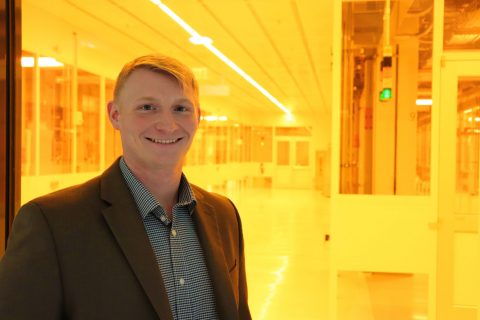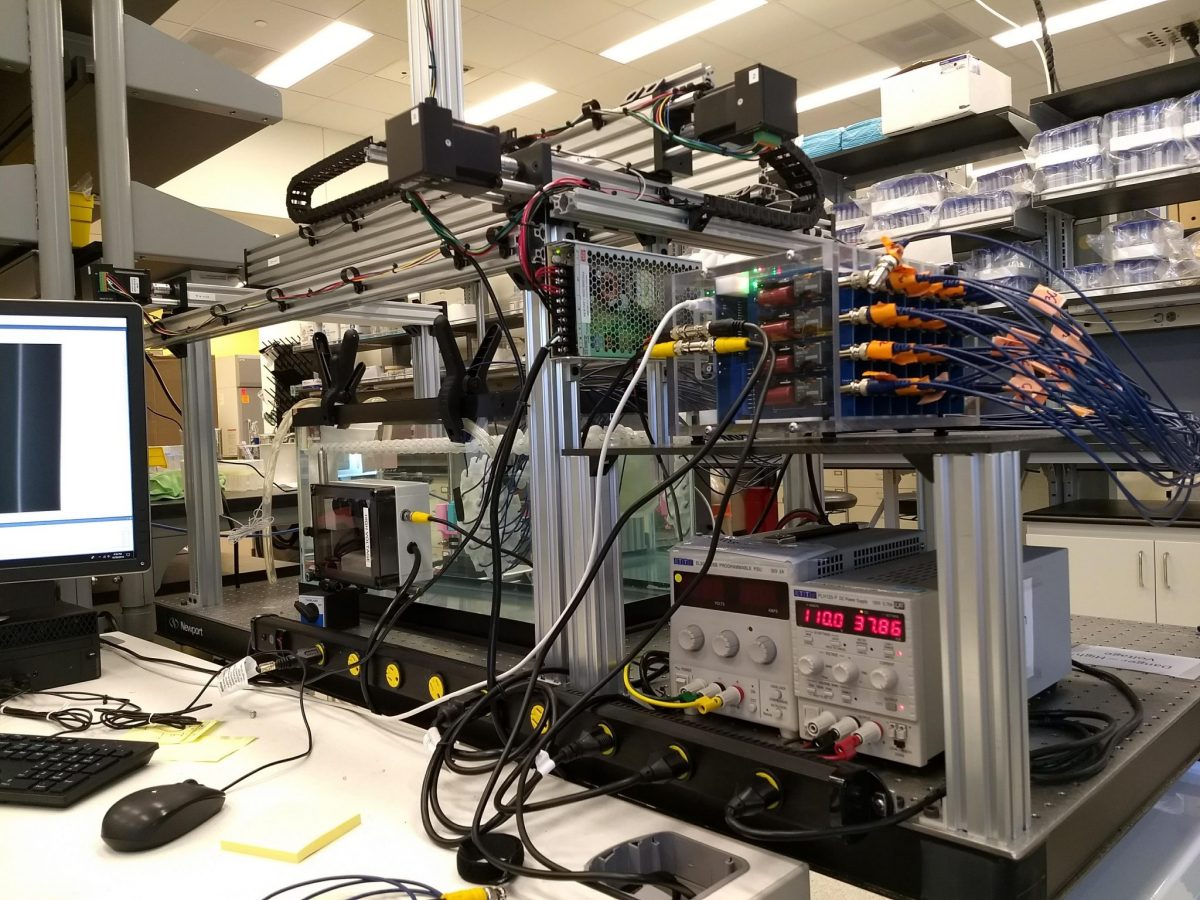Dr Hal Holmes, a member of the current inaugural class of Schmidt Science Fellows, has been announced as one of just five 2018 Moore Inventor Fellows by the Gordon and Betty Moore Foundation.

Dr Holmes is the first not-for-profit and the first conservationist to be named an Inventor Fellow. The award, worth a total of $825,000, will support Dr Holmes to develop his invention, a battery-powered, hand-held, DNA ‘barcode scanner’ for use by wildlife protection and customs officers in the field to rapidly and accurately identify animal and timber products to combat the $100bn a year trade in endangered species.
Dr Holmes is currently undertaking his Schmidt Science Fellows postdoctoral year in Eli Vlaisavljevich’s Laboratory at Virginia Polytechnic Institute and State University (Virginia Tech) where he is working in an ultrasound lab to develop new DNA extraction platforms to increase the range of sample types that his DNA barcode scanner can handle.
Dr Holmes said: “Human-induced species extinction is a massive crisis, we are literally in the middle of a sixth mass extinction. If we cannot reverse this course, we will devastate not just the amazing ecosystems of our planet but also the human societies that rely on them. The illegal trade in endangered species is worth an estimated $100bn and it is fuelled, in part, by the challenge enforcement officers have in telling the difference between legitimate and illicit products. My aim is to provide the tool to change this. Conservationists have long known that every species has a unique DNA ‘barcode’. My invention will allow anyone to check for these barcodes and validate the identity of a natural product, in the field, dockside, timber yard, or customs checkpoint.”

Dr Holmes will pursue the development of his invention over the next three years with the non-profit organization Conservation X Labs, where he is lead for conservation product engineering. Conservation X Labs, who will contribute $150,000 of the total funding, applies technology, entrepreneurship, and open innovation to source, develop, and scale critical solutions to the underlying drivers of human-induced extinction.
The Moore Inventor Fellows program supports early-career scientist-inventors working on innovative projects with the potential to bring about significant change. Recipients are supported at a critical stage of their research and benefit from the resources and freedom to test out their ideas.
Dr Megan Wheeler, Schmidt Science Fellows Executive Director, commented: “We are all thrilled for Hal that his work and its potential are being recognized through the Moore Inventor Fellow award. Our aim with Schmidt Science Fellows is to accelerate discovery through interdisciplinary science to tackle the world’s most pressing problems. Hal personifies this mission. With the Moore Inventor Fellow award, he will use both his engineering background and his new skills in ultrasound-based DNA extraction, honed during his Schmidt Science Fellows postdoctoral year, to take on the $100bn a year illicit trade in endangered species.”
ENDS
Contact
Schmidt Science Fellows, in partnership with the Rhodes Trust
Matt Goode, Director of External Affairs & Fellowship Support
Tel: +44 7766 423 372
Email: mgoode@schmidtsciencefellows.org
Notes
For more information on the Moore Inventor Fellows and the Gordon and Betty Moore Foundation see: https://www.moore.org/initiative-strategy-detail?initiativeId=moore-inventor-fellows
For more information on Conservation X Labs see: https://conservationxlabs.com/mission/